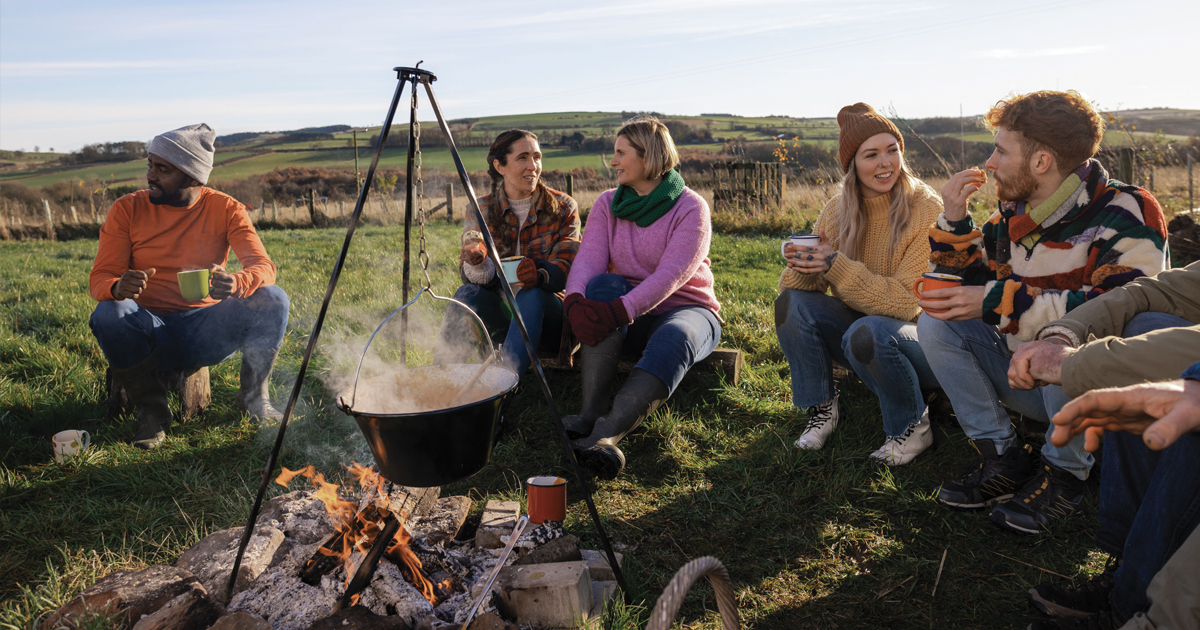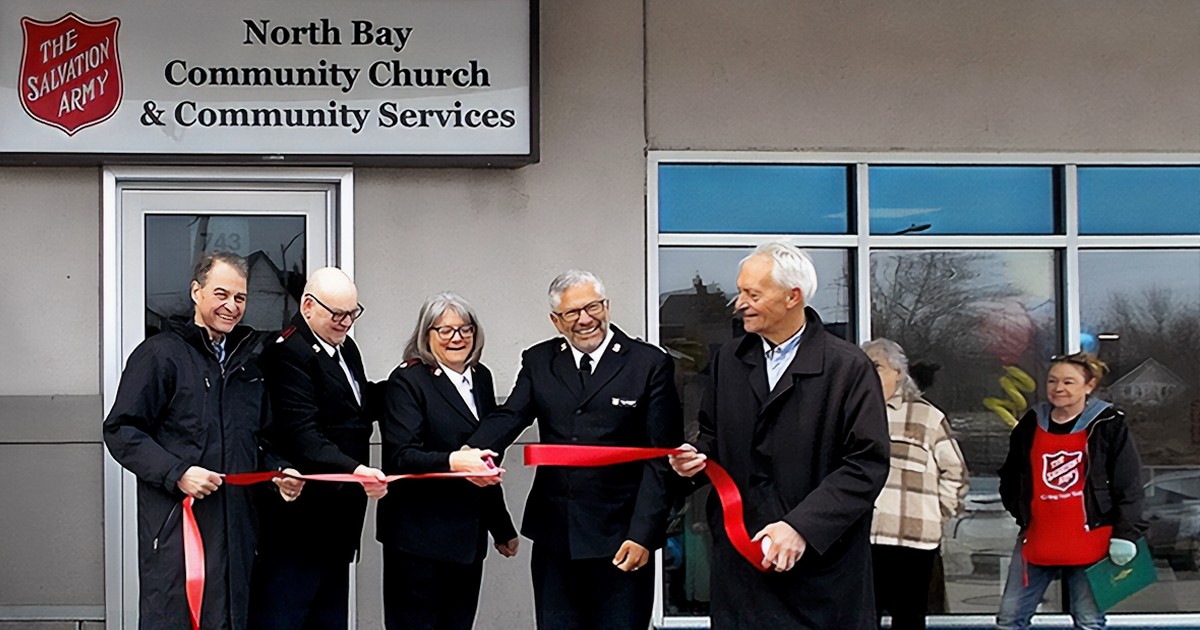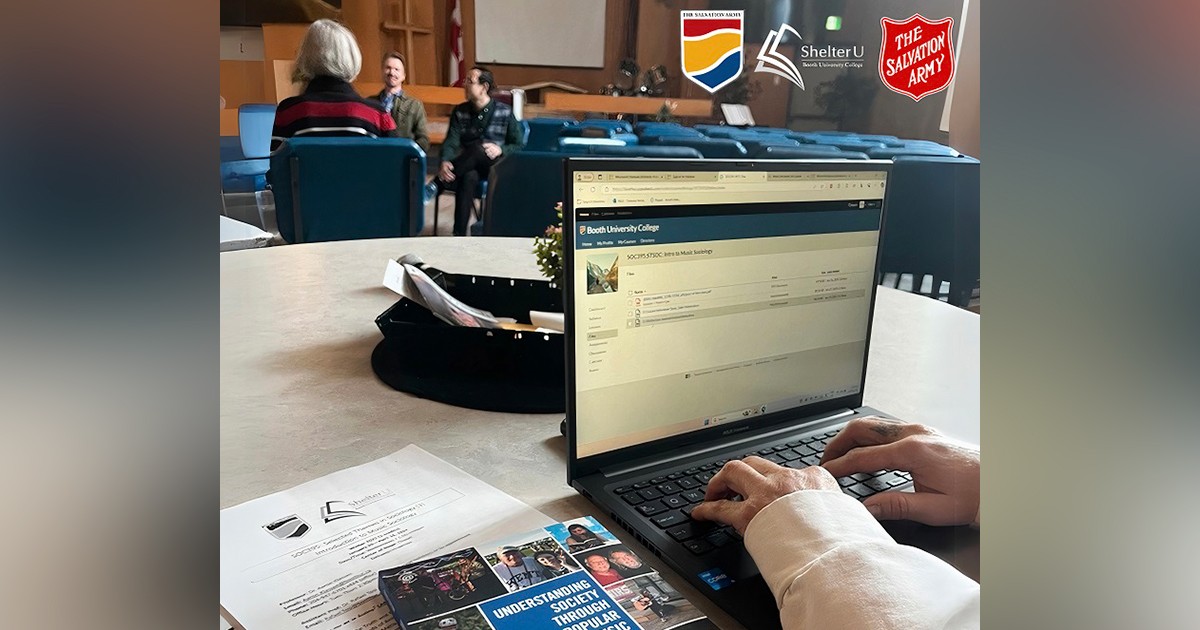As we continue our series on the foundations of a healthy corps, Major Shari Russell explores the nature of authentic community with ministry leaders Damian Azak and Captains Jennifer and Rob Henson.
When I think about building authentic community, I think about the conversation between the Rabbit and the Skin Horse in The Velveteen Rabbit. The Skin Horse explains that becoming real is something that happens to you, bit by bit.
“It takes a long time,” he says. “Generally, by the time you are Real, most of your hair has been loved off, and your eyes drop out and you get loose in the joints and very shabby. But these things don’t matter at all, because once you are Real you can’t be ugly, except to people who don’t understand.”
Authentic community is about being real. Damian Azak, corps leader, Gitwinksihlkw, B.C., says, “It’s about journeying alongside people, getting to know them in everyday activities—as you eat with them, walk with them, grieve with them. You don’t necessarily have to talk; it’s good to just listen. To go to birthday parties and invite people over for dinner. To be in community, you have to see everyone as brothers and sisters, as family.”
Captains Jennifer and Rob Henson, corps officers, The Salvation Army Renew Church Ministries, which serves Westbank, West Kelowna and Peachland, B.C., echo these sentiments: “Authentic community is about depth of relationships. It’s getting to know people, not just about them.” The Hensons use the analogy of IKEA’s “As Is” section, where things are not perfect but still valuable, to describe authentic community.
Authentic community requires reciprocity and sharing. This means relationships that are not performative or transactional, but show humility, reciprocity and mutuality, moving beyond charity to genuine sharing of who we are. The Hensons point out that we are “created and designed for community.” Captain Rob shares that they have learned not to rush ahead with their vision, but to integrate into the community that already exists by “spending time together, going on camping trips, showing up for each other, eating meals together—this is when bonds start to form.” And as they are open and host others, “It creates safe space where the ‘not togethers get together’ without shaming.”
Azak eloquently reminds us that community encompasses more than humanity as we are interconnected with all creation. For the Nisga’a, the foundation of authentic community is Saytk’ilhl Wo’osim or the “Common Bowl,” which teaches that “everyone relies on the same resources and community, all must contribute,” according to the Nisga’a Nation’s government website.
Azak explains: “We share the land; we share the resources. We take care of it. We don’t just use it for our own personal gain. The grass, the trees—people were intended to take care of it. We put it all into a pot and we all take care of it. Creator intended for us to take care of it for generations to come, so they can all enjoy what we see, what we enjoy.”
This theme resonates with the Hensons, who have been learning about the community of creation, and that “all my relations” includes “reciprocity in the land.”
Authentic community is transformational. “When you allow yourself to be vulnerable to the people you are in community with, to be real,” shares Azak, “you listen. When you do that, it changes you—how you think, how you feel, what you do.”
Captain Rob agrees, confessing that transformation began with himself and his own worldview. It is not an easy process, but Captain Rob says he has become “uncomfortably OK with the process.” When it comes to the transformation of others, he is reminded that this transformation is “not our work, but we can bear witness to the transformation.”
When asked “Where have you seen personal transformation as a result of your work in developing authentic community?” Captain Jennifer replied that it was an “unhelpful question,” as it leads to an answer that resembles a Disney or Pixar fairy tale, rather than recognizing all the “small increments of change” in the everyday sacredness of life. It is these small changes that can be truly transformational, she says: “Making eye contact with someone, apologizing when you are wrong, composting and picking up litter.” These may seem small and seemingly insignificant, but they lead to change, not only in someone’s life but in the world.
As we seek to live out our vision statement and build communities that are just and know the love of Jesus, let’s have the courage to share our whole selves and to welcome the uniqueness and diversity of others with unconditional care and compassion.
Major Shari Russell is the territorial Indigenous ministries consultant and associate director of NAIITS: An Indigenous Learning Community
Photo: SolStock/E+ via Getty Images
This story is from:










Leave a Comment